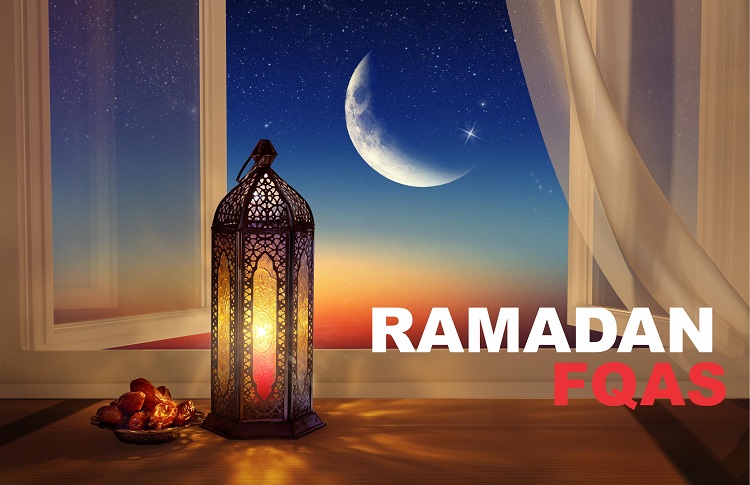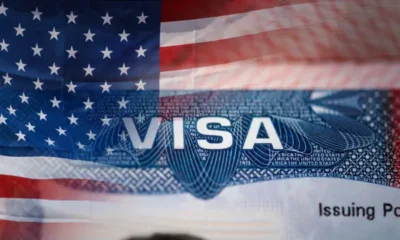Lifestyle
10 Frequently Asked Questions About Ramadan, Answers
10 frequently questions about Ramadan and their answers have been discussed in this article.

10 frequently questions about Ramadan and their answers have been discussed in this article.
Before going through the most frequently asked questions about Ramadan, it is important to understand what it is.
Ramadan is a month of fasting, prayer, reflection, and community. Observed as the ninth month of the Islamic lunar calendar, Ramadan commemorates the first revelation of the Quran to Muhammad according to Islamic belief.
During this holy month, Muslims fast from dawn until sunset, abstaining from food, drink, and other physical needs during the daylight hours. It’s a time to purify the soul, refocus attention on God, and practice self-discipline and sacrifice.
Here are 10 frequently asked questions about Ramadan:
1. What is Ramadan?
This is the most frequently asked questions about Ramadan. Ramadan is the ninth month of the Islamic lunar calendar and is considered one of the holiest months for Muslims. It’s a period of fasting, prayer, and reflection. Muslims believe that during Ramadan, the gates of heaven are open, and the gates of hell are closed, making it an auspicious time for spiritual growth and contemplation.
2. How long does Ramadan last?
Ramadan lasts for one lunar month, which is about 29 to 30 days. The exact duration varies from year to year because it is based on the sighting of the moon. The beginning and end of Ramadan are determined by the lunar Islamic calendar.
3. What is forbidden during Ramadan?
During the daylight hours of Ramadan, Muslims are required to abstain from eating, drinking, smoking, and marital relations. The fast is a means of cultivating self-discipline, self-restraint, and generosity.
4. What can Muslims eat after sunset?
After sunset, Muslims break their fast with a meal called ‘Iftar’. There are no specific restrictions on what can be eaten, but it usually starts with dates and water, following the tradition of Prophet Muhammad. This is followed by a larger meal, which can vary greatly according to culture and personal preference, including soups, salads, meat dishes, and sweets.
5. Do children fast?
Fasting is not compulsory for children under the age of puberty in Islam. However, some children choose to fast for a part of the day or for a few days during Ramadan to practice for when they are older. It’s a personal and family decision.
6. How do Muslims celebrate the end of Ramadan?
The end of Ramadan is celebrated with a festival known as Eid al-Fitr, the Festival of Breaking the Fast. It is one of the two major Islamic celebrations. Muslims start the day with a special prayer, then spend the day visiting family and friends, giving gifts, and enjoying meals together.
7. Can I wish someone a happy Ramadan as a Christian?
Absolutely! Wishing someone a happy Ramadan is a kind gesture that is appreciated regardless of your religious background. You can say “Happy Ramadan” or “Ramadan Mubarak,” which means “Blessed Ramadan.”
8. What are Suhoor and Iftar?
Suhoor is the pre-dawn meal consumed early in the morning before the fast begins at dawn. Iftar is the meal eaten after sunset to break the fast. Both meals are crucial during Ramadan as they help sustain individuals throughout the day.
9. Which year will Ramadan come twice?
Since the Islamic calendar is lunar and about 10-12 days shorter than the Gregorian calendar, every 32 or 33 years, Ramadan occurs twice in one Gregorian year. The last time this happened was in 2030, and it will happen again in 2063. These years are approximate and depend on moon sightings.
10. Do you lose weight during Ramadan fasting month?
Weight loss during Ramadan can vary from person to person. While fasting from dawn until sunset might lead to a reduction in caloric intake, which could result in weight loss for some, others may not experience significant weight changes. This variation largely depends on the nature and quantity of food consumed during Suhoor and Iftar meals. If these meals are high in calories or if there’s a tendency to overeat after breaking the fast, any potential weight loss may be offset.
We believe you have been clarified by the above most frequently asked questions about Ramadan.
























You must be logged in to post a comment Login